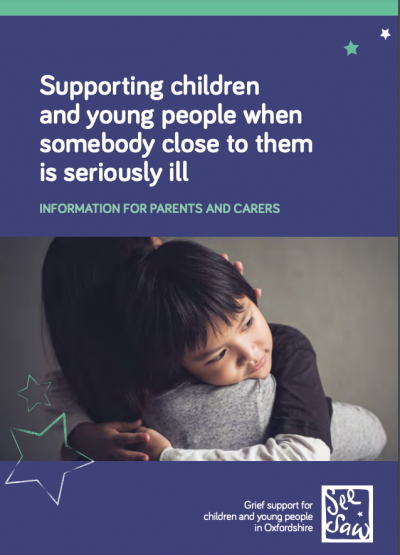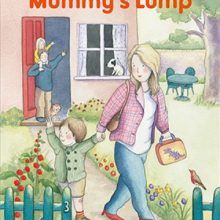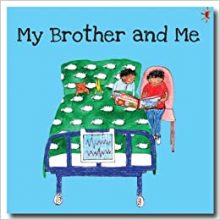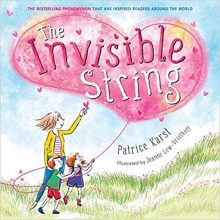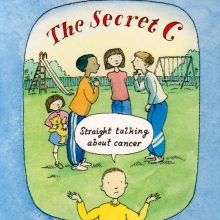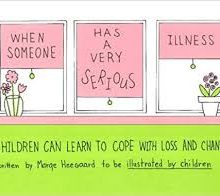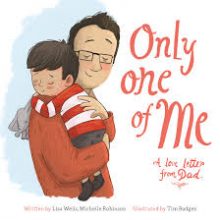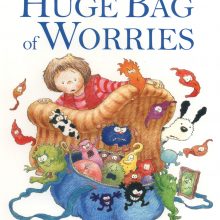Supporting children and young people when somebody close to them is seriously ill

Supporting children and young people when someone they love is seriously ill can cause anxiety and raise many questions. We have divided our advice into the following sections to help you find the support you are in need of at this time.
How can I support my child or young person when I am, or somebody close to them is, seriously ill?
When a parent, sibling or grandparent is seriously ill, the chances are that your child will already suspect that there is something wrong before they are told. As parents and carers, we want to protect our children and young people from life’s challenges. In doing so, we often underestimate how much they need to know and how well they can cope with information that we feel is too sensitive or too difficult for them to hear.
The reality is that children need clear, honest, age-appropriate explanations so that they feel included in what is happening and prepared for what is to come - the alternative can be that they will search for information elsewhere or begin to believe things that are incorrect and often more worrying for them.
We cannot prevent children and young people having emotions and reactions but if we are open and honest in how we communicate we can strengthen their trust and reduce their anxiety, which should enable them to accept and make good use of support.
Communication
What you choose to share with your child will depend on their age and stage of development and on any previous experiences they may have had with serious illness.
Young children, below the age of around 5 years old, will usually find it difficult to grasp the meaning of serious illness. They will probably be unable to understand any apparent reduced activity or low energy levels, for example, and will benefit from short, simple explanations and the opportunity to ask questions repeatedly about what is happening.
Similarly, children with specific learning difficulties or developmental disabilities may have limited understanding of serious illness and struggle to make sense of the changes they see. They too will benefit from brief, clear explanations using straightforward, concrete language.
Broadly speaking, children of primary school age will have some understanding of the implications of serious illness but may still have misconceptions that would need to be corrected. Asking them regularly about their understanding can help.
As children move into the teenage years, they develop the ability to reflect on serious illness and what it may mean for them and for their families, both now and in the future. They will benefit from honesty, clarity and inclusion where possible, as well as the invitation to ask questions and discuss their concerns whenever they need to.
Reassurance and Routine
Reassure them that there is no right or wrong way to feel about what is happening to their loved one; that it is ok if they feel sad, angry, scared, anxious or a mixture of many emotions. Hearing that they are free to express these emotions, that they are safe and loved and that they will be cared for even if their parent is seriously ill, will also help children and young people to self-regulate and to move forward.
School
Children and young people spend a great deal of time in school. It is important that their teachers and carers are aware if somebody close to your child is seriously ill so that they are able to understand any changes they may observe in your child’s emotional, behavioural or physical wellbeing and communicate this information back to you. The school should be updated when changes occur.
Self-care
Whether you are seriously ill, or you are caring for children when somebody else is, it is important that you also look after your own physical and emotional wellbeing. If you have offers of support, do not be shy to take them. Take time out for yourself whenever you can - time to relax, continue your pastimes, take exercise, get some fresh air or meet friends. Remember that we all need support at times and there are many organisations and networks that you can access for this, including contacting our team at SeeSaw for advice and support if you are concerned about your children.
How do I tell my child that I am, or somebody close to them is, dying?
Choosing to tell a child that somebody they love is going to die may feel like an overwhelming task that goes against all of our protective instincts. However, there are long-term benefits for the children which outweigh any short-term gain of trying to protect them by either concealing what we know or avoiding the conversation.
This conversation is naturally extremely difficult but with support and preparation, it is possible to share this information and begin to plan and prepare for what happens next.
What questions might your child ask?
Answering your child’s questions openly and honestly using clear and simple language at their developmental level of understanding will help them to process what is happening. If you do not have the answer to a question, or find a question too difficult to discuss at that time, then it is OK to say so and follow up on it at a later date when you have the information or feel stronger and ready to talk about it. In our experience, these are the types of questions children usually ask:
Will I catch the illness too?
“This illness is not like a cold or tummy bug and you can’t catch it from them. It is ok to sit close to Daddy/Mummy/Grandpa and you can still hug and kiss them.”
If the person has been diagnosed with an infectious disease, you can explain simply what the name of the disease is and how people can protect themselves from catching it.
Who will look after me when you are/daddy is in hospital?
“Granny/Daddy/Mummy is going to be here to stay with you whilst I am/Daddy/Mummy is in hospital. You won’t be left on you own. If you are worried about anything, you can speak to them at any time.”
Who will take me to my swimming lesson/football training/choir practice?
“Granny/Daddy/ Mummy will try to make sure that you still get to go to your activities each week because it is important that you carry on with these and continue to have fun.”
Is this my fault?
“Nothing you said or did or thought could ever make this happen. And nothing you didn’t do or say or think could ever make this happen. I am/Mummy is/Daddy is very ill and it is nobody’s fault”.
What will happen to me when Mummy/Daddy dies?
“We will miss Mummy/Daddy very much and our lives will feel very different without them. Sometimes we will feel very sad that they are not here with us and we will miss them. But we will get through this together.”
How might my child react to this news?
It is important to know that most families cope well when somebody has a serious illness. The initial shock of emotions following a terminal diagnosis sometimes leads adults to assume that their children will need professional help to get through the coming weeks, months or years. Families who maintain open and honest communication and who feel they are easily able to share their feelings are often surprised by their own coping skills.
As mentioned already, everybody reacts differently to the news that somebody they love is dying, therefore it is important to emphasise that ALL feelings are normal and there is no right or wrong way to react or behave.
How can SeeSaw help?
At SeeSaw, we have a team of practitioners, some of whom are dedicated to working with children and families when someone is dying. This is called a pre-bereavement team.
We can help parents to support their children by talking through their concerns and providing advice and support.
If you live in Oxfordshire, we can visit you at home or in the hospice/hospital. We can work directly with the children wherever needed, or simply provide telephone or video call support to parents.
How do I contact SeeSaw?
You can contact SeeSaw by email on [email protected] or by following the contact links within this website. A member of staff will contact you within 24-48 hours.
Where can I find further support?
- Macmillan Cancer Support
- Marie Curie
- Motor Neurone Disease Association
https://www.mndassociation.org
- Child Bereavement UK
https://www.childbereavementuk.org
- Winston’s Wish
- Riprap (Website for older children and teens when a parent has a serious illness)
- Plan If
Resources
Suggested Readings
Mummy’s Lump
by Gillian Forrest
Mummy’s Lump is a reassuring story, told in a familiar way for young children and is suitable for any family who needs to talk about a difficult subject like cancer. It covers diagnosis, going into hospital, treatments and hair loss.
My Brother and Me
by Sarah Courtauld
Told from a child’s perspective, this is the unfolding story of the changes a boy and his family experience when his brother becomes very ill, resulting in hospital stays.
A Monster Calls
by Patrick Ness
Thirteen-year-old Conor awakens one night to find a monster outside his bedroom window, but not the one from the recurring nightmare that began when his mother became ill–an ancient, wild creature that wants him to face truth and loss.
No Matter What
by Debi Gliori
I’m grim and grumpy,” says Small to Large, “and I don’t think you love me at all.” But nothing could be further from the truth–and Large knows just how to reassure Small in this warm and tender story about a child’s biggest worry and a parent’s endless capacity for love.
The Invisible String
by Patrice Karst
Whether it’s a loved one far away, or a parent in the next room, this delightful book illustrates a new way to cope with something all children and parents confront sooner or later; a child’s fear of loneliness and separation. Here is a warm and delightful lesson teaching young and old that we aren’t ever really alone.
When your Mum or Dad has cancer
by Ann Couldrick
A booklet to assist parents who have cancer with the difficult task of talking to their children about their illness.
The Secret C
by Julia A Stokes
This illustrated guide for children provides a sensitive introduction for a child when a parent, sibling or a person close to them is diagnosed with cancer. Cancer in the family is hard for everyone, especially when children are involved. Children need to understand what is happening and it can be hard for adults to explain when they themselves are trying to come to terms with the implications of the diagnosis. Children often want information but sense that they need to protect their parents from the questions they want to ask.
when someone has a very serious illness
by Marge Heegaard
A workbook to help children deal with feelings about serious illness. An excellent resource for helping children learn the basic concepts of illness and various age-appropriate ways of coping with someone else’s illness.
Wherever You Are My Love Will Find You
by Nancy Tillman
. . . I wanted you more than you’ll ever know,
so I sent love to follow wherever you go. . . .
Love is the greatest gift we have to give our children. It’s the one thing they can carry with them each and every day.
If love could take shape it might look something like these heartfelt words and images from the inimitable Nancy Tillman. Wherever You Are is a book to share with your loved ones, no matter how near or far, young or old, they are.
Always and Forever
by Debi Gliori and Alan Durant
When Fox dies the rest of his family are absolutely distraught. How will Mole, Otter and Hare go on without their beloved friend? But, months later, Squirrel reminds them all of how funny Fox used to be, and they realise that Fox is still there in their hearts and memories.
Only One of Me
by Lisa Wells and Michelle Robinson
The Only One of Me project grew from Lisa’s determination to leave a lasting legacy for her daughters and her desire to help other families rally against the difficulties of loss. Her activities have raised thousands for charity and huge public support through JustGiving has enabled the publication of these beautiful books
Only One of Me – Dad
by Lisa Wells and Michelle Robinson
The Only One of Me project grew from Lisa’s determination to leave a lasting legacy for her daughters and her desire to help other families rally against the difficulties of loss. Her activities have raised thousands for charity and huge public support through JustGiving has enabled the publication of these beautiful books
The huge bag of worries
by Virginia Ironside
A compelling picture book which can be used as a spring board into what worries children today. The lively, comic-style pictures and the general nature of the worries make this excellent for any number of problems. The message of the book is clear—find someone who will listen and talk about your worries.

